DESIGN
PHILOSOPHY
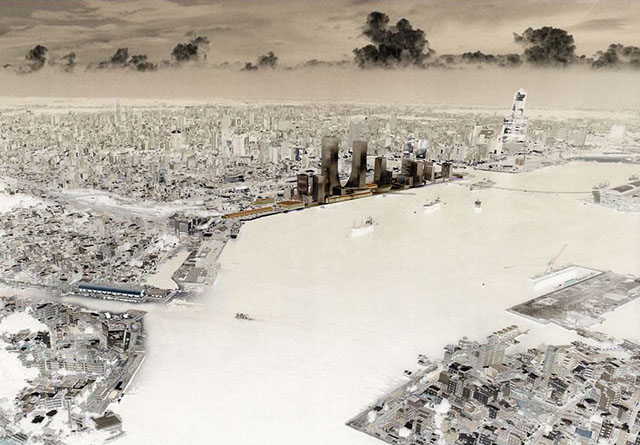
'We are passionate designers building relationships with our clients and the communities we work within.'
ESD focuses on how new urban form emerges from analyses of ecological and landscape systems, and engages in propositions of ecologically urbanism through design. The first mission “ecological urban design” investigates cross-scale sustainable design and planning. The second mission “ecological system analysis” focuses on low carbon and renewable energy design strategy, complex urban and natural environment and related GIS-based analysis. ESD aims for developing an approach that articulates urban design and ecological urban analysis.
COMPANY
PROFILE
Atlanta Taipei Shanghai
The predecessor of the ESD firm was Perry Yang Studio in Singapore, and the principal, Professor Yang Peiru, is currently teaching at the Department of Urban Planning and Architecture at Georgia Tech in the United States. In 2005, he won the first prize in the pre-planning international competition for the main venue of the 2009 World Games in Kaohsiung and implemented the venue design. At the opening of the 2009 World Games, CNN reported as “Eco-friendly venue planning”. The main urban design works of ESD were published in the January 2010 issue of Eco-Urbanism of WA World Architecture Magazine. During the 10 years so far, he has won many international design competition awards and tasks in Asia including Tokyo, Taipei, Kaohsiung, Xiamen, Guangzhou, Nanjing, Ningbo, Hangzhou and Hyderabad, India.

COMPANY DESIGN
AWARDS
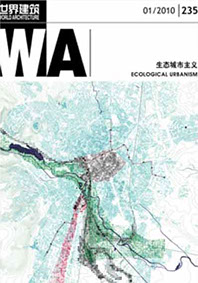
ESD’s project is selected printed in the WA( Archtectual Magazine) ,Jan 2010, named ECOLOGICAL URBANISM.
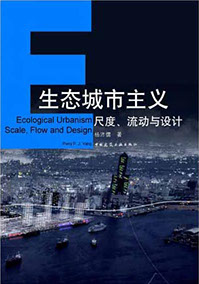
China Architecture & Building Press printed Perry P.J. YANG’s book in 2011.
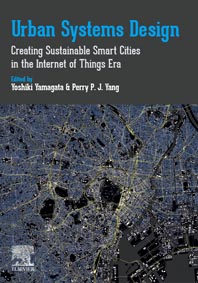
P.J. YANG is co-author of the book Urban Systems Design-Creating Sustainable Smart Cities in the Internet of Things Era.
2006
2009 World Games Park
Kaohsiung, 2006
1st prize, international design competition,in collaboration with MAA (Taipei) and COX + Peter Droege (Sydney).
Taipei Botanical Garden
Taipei, 2006
1st prize, international design competition.
2007
Maluan bay New Downtown Urban Design
Xiamen, 2007
1st prize, urban planning competition ,collaboration with Xiamen Planning Institute
2008
Bai e tan waterfront regeneration urban design
Guangzhou, 2008
Final entry, urban planning competition ,collaboration with Guangdong Planning Institute
2009
Shuidong Bay Urban Design,2009
1st prize, urban planning competition ,collaboration with Guangdong Planning Institiute
2010
Hangzhou Bay New Town Urban Design,Ningbo,2010
Final entry, urban design competition, collaboration with Tongji University
West west industral new town urban design,Shunde,2010
1st prize, urban design competition
2011
West new town urban design,2011
Final entry, urban planning competition ,collaboration with Guangdong Planning Institiute
Beijing Information Science And Technology University campus design,2011
1st prize, campus design competition ,collaboration with BUE Beijing Urban Engineering Design Institute
2012
Urban Redevelopment of Taipei Army Camp and Surrounding District,2012
Participated,regneration competititon
2013
Taipei’s “Manhattan”: Waterfront revitalization strategy along Taipei Danshui River, 2013
1st prize, strategy competition
2014~2015
Kaohsiung New Asian Bay Area Waterfront Redevelopment, 2014-2015
2ed prize, urban design competition
2016
Taoyuan Green City Urban Design, 2016
1st prize, urban design competition
2017
Pearl River Delta Bay Area Nansha Art District International Competition, 2017
1st prize, urban design competition
Misono Smart City for Tokyo 2020 Olympics (on-going), 2017
Finalist, urban design competition
The 2022 Hangzhou ASIAD Key Project (Athlete Village), 2017
Finalist,urban design competition
2018
International Design Competition Musi River Revitalization Invitation
Finalist,urban design competition
2019
Conceptual Urban Design andScenario Planning for Smart CityModeling at Shinagawa
smart city competition
Foshan West Railway Station Hub New City—Smart City Feature Report
2020
Future ShanShui City ·Dwellings in Lishui Mountains
3rd Prize, urban design competition
International Solicitation of Conceptual Design Proposals for Key Lakes in Coordination Area of Yangtze River Delta Eco-Green Integrated Development Demonstration Zone (Xiushui New District)
Finalist, urban design competition
2021
Urban Design of Two Sides of Shuangxi West Road in Jinhua Development Zone
Design Proposals for the Chang'ansha area of Hangzhou Sanjianghui Green Heart Park
DESIGN
TEAM
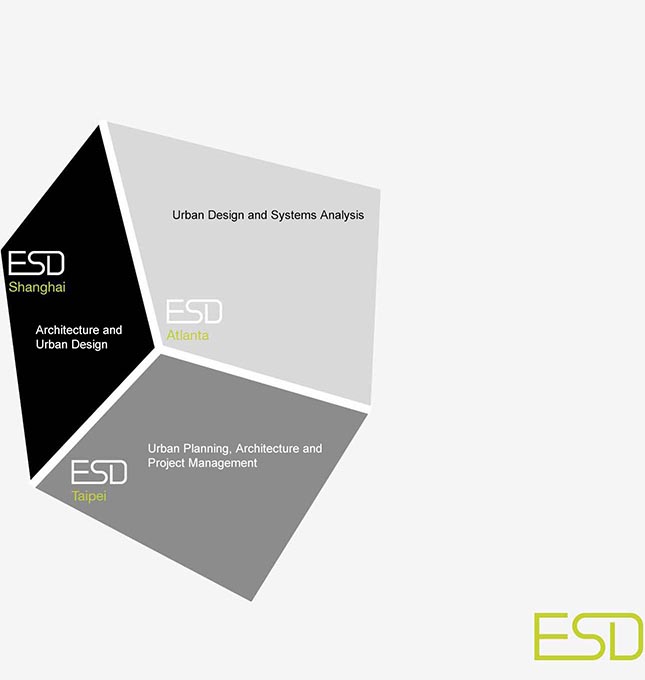
PERRY P. J.
YANG
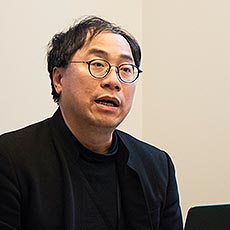
Perry P.J. YANG
Associate Professor, School of City and Regional Planning + School of Architecture, College of Architecture, Georgia Institute of Technology
Bayer Chair Professor, UNEP (United Nations Environment Program) - Tongji Institute of Environment for Sustainable Development (IESD)
Co-Director, Sino-U.S. Eco Urban Lab, Georgia Tech and Tongji University
Principal, Eco Systems Design Studio (ESD), Atlanta, Taipei, Shanghai
245, 4th Street, NW Suite 204, Atlanta, Georgia 30332.0155 U.S.A.
Office: 1+404.894.2076; FAX: 404.894.1628; CELL: 1+404.213.5313
Email: perry.yang@coa.gatech.edu
Website: http://www.coa.gatech.edu/people/perry-yang
Related Publications
Published Books and Parts of Books (student advisees underlined)
1.
Yamagata, Y., Yang, Perry P. J. (2020) Urban Systems Design: Creating Sustainable Smart Cities in the Internet of Things Era, Elsevier.
2.
Chang, Soowon, Yang, Saha, Nirvik, Castro- Lacouture, Daniel, Yang, Perry P. J., (2019) Multivariate relationships between campus design parameters and energy performance using reinforcement learning and parametric modeling, in Applied Energy 249, 253-264. (as the corresponding author)
3.
Yang, Perry P. J., Chi, Cheryl S. F., Wu, Yihan., Quan, Steven. J, (2018) A Geodesign method of human-energy-water interactive systems for urban infrastructure design: 10KM2 near zero district project in Shanghai, in Engineering 4, 182-189.
4.
Yang, P P J, Quan, S J, Castro- Lacouture, D, Stuart, B, (2018) A Geodesign method for managing a closed-loop urban system through algae cultivation, in Applied Energy, 231, 1372-1382.
5.
Yang, Perry P J, Wu, Yihan, Peng, Z, Li, Lisha, Tobey, Michael, Yamagata, Yoshiki (2018) Performance-based model for vertical urbanism, in Vertical Urbanism: Designing Compact Cities in China, Lin Z & Gamez J eds. Routledge.
6.
Yang, Perry P. J., Wiedenback, Annette, Tobey, Michael, Wu, Yihan., Quan, Steven. J., Chauhan, Yugendra, Wu, Jiang (2017) Material Based Urban Modeling: An Approach to Integrate Smart Materials in a Near-Zero Community Design. Energy Procedia, Vol 105, 3765 – 3771.
7.
Yang, Perry P J, Quan, Steven J. (2016) Urban form and energy resilient strategies: A cast study of the Manhattan grid, in Urban Resilience – A Transformative Approach, Yoshiki Yamagata and Hiroshi Maruyama eds., Springer.
8.
Yang, Perry P. J., Wiedenback, Annette,Tobey, Michael, Wu, Yihan., Quan, Steven. J., Chauhan, Yugendra, Wu, Jiang. (2016) Material Based Urban Modeling: An Approach to Integrate Smart Materials in a Near-Zero Community Design. Energy Procedia.
9.
Yang, Perry P. J. (2015) Energy Resilient Urban Form: A Design Perspective, in Energy Procedia 75, Elsevier.
10.
Quan, Steven. Qi Li, Godfried, Augenbroe, Brown, Jason, Yang Perry P. J. (2015). A GIS- based Energy Balance Modeling System for Urban Solar Buildings. in Energy Procedia 75, Elsevier. (as the corresponding author)
11.
Quan, Steven. Qi Li, Godfried, Augenbroe, Brown, Jason, Yang Perry P. J. (2015). Urban Data and Building Energy Modeling: A GIS-based Urban Building Energy Modeling System Using the Urban-EPC Engine, in Planning Support Systems and Smart Cities. Stan Geertman, Joseph Ferreira, Jr. Robert Goodspeed, John Stillwell eds. (as the corresponding author)
12.
Yang, Perry P. J. 2014. Book chapter “Energy resilient urban planning”, in Geodesign by Integrating design and geospatial sciences, Lee D and Dias E, Scholten H eds, Springer.
13.
Yang, Perry P. J. 2013. Book chapter “Landscape ecology and its urbanism” in Landscape Urbanism and its Discontents: Dissimulating the Sustainable City. Andres Duany and Emily Talen eds., Island Press.
14.
Yang, Perry P. J. 2013. Book chapter “Hydrological effects of urban form and landscape change”, in Planning stormwater resilient urban open spaces, vol. 3, F.D. Moccia and M.F. Palestino eds. Clean, Napoli.
15.
Quan, Steven. J., Minter, John, Yang, Perry P. J. 2013. Book chapter “A GIS-based performance metrics for designing a low energy urban agriculture system” in Planning Support Systems for Sustainable Urban Development, Springer Publication. (as the corresponding author)
16.
Yang, Perry P. J. 2010 Ecological Urbanism: Scale, Flow and Design, China Architecture and Building Press (China Architecture and Building Press is a prestigious publisher owned by China’s Ministry of Construction with great reputation in the area of architecture, city planning and construction in Chinese language world: http://en.cabp.cn).
Refereed Journal Papers (student advisees underlined)
J1.
Yang, Perry P. J., Quan, Steven. J., Castro- Lacouture, Daniel, Rudolph, Charles, Stuart, Ben. 2014. Performance metrics for designing an algae-powered eco urban district: A Geodesign perspective, in Energy Procedia, Elsevier
J2.
Quan, Steven. J., Economoua, Athanassions , Grasl, Thomas., *Yang, Perry P. J. 2014. Computing energy performance of building density, shape and typology in urban context, in Energy Procedia, Elsevier. (as corresponding author).
J3.
Yang, Perry P. J. 2014. Eco Area Ratio: Energy performance assessment and reduction approach for urban redevelopment in high-density environment, in Urban Planning Forum, Vol.03, 91-10.
J4.
Yang, Perry P. J., Li Zhengwei. 2013. Carbon emission assessment for Central City Districts of Macau, Planner, Vol. 03, 08:32, 2013.
J5.
Yang, Perry P. J. 2012. Complexity Question in Urban Systems Design, in Journal of Architectural Engineering Technology, editorial, Vol. 1, Issue 2, 187-189.
J6.
Yang, Perry P. J. 2010. Ecological Urbanism: Five Dimensions in Design, in Special Issue “Ecological Urbanism”, WA (World Architecture), Tsinghua University, January 10.
J7.
Yang, Perry P. J. 2010. Landscape as Flows: An Ecological Design Approach to Large-scale Urban Landscape, in Special Issue “Ecological Urbanism”, WA (World Architecture), Tsinghua University, January 10.
J8.
Yang, Perry P. J. 2009. Questioning urban sustainability: social sufficiency, ecological efficiency and ecosystems compatibility. Journal of Urbanism, November 2009, Vol. 2, Issue 3.
J9.
Yang, Perry P. J., Putra, Simon. Y., Chaerani, Meutia. 2007. Computing the Sense of Time in Urban Physical Environment, Urban Design International. 12, 115-129.
J10.
Yang, Perry P. J., Putra, Simon Y., Li Wenjing. 2007. Viewsphere: GIS-based 3D visibility analysis for urban design evaluation. Environment and Planning B: Planning and Design, Vol.34. 971-992.
J11.
Yang, Perry P. J., Ong, Boon Lay. 2004. Applying ecosystem concepts to the planning of industrial areas: a case study of Singapore's Jurong Island. Journal of Cleaner Production, 12, 1011-1023.
(Journal articles under review)
J12.
Yang, Perry P. J., Quan, Steven. J. 2014. A Geodesign framework for designing a low energy urban agriculture system, submitted to Environment and Planning: Planning and Design B.
Design awards/honors (as the chief planner or the principal designer)
2021
3rd Prize, Water Town International Urban Design Competition of Jiaxing Xiushui, as the Chief Designer, in collaboration with Alan Balfour. (The 3rd prize out of 81 submissions. Other finalists include China Academy of Urban Planning and Design, Atkins, Turenscape). https://www.linkedin.com/feed/update/urn:li: activity:6763512259609153536/
2020
Finalist, Future Shanshui City; Dwellings in Lishui Mountains International Urban Design Competition, as the Chief Designer, in collaboration with CAI Yongjie. (As one of the 10 finalists out of 86 submissions. Other finalists include China Academy of Urban Planning and Design, DE-SO Asia, UN Studio Netherlands, Canada GA City Planning and Landscape Architecture...etc. The jurors included Nishizawa Ryue of 2010 Pritzker Prize winner, Alan Plattus of Yale University and other renowned urban scholars in China.) www.youtube.com/watch?v=YmKqnCsB_Tc
2018
Finalist, International Design Competition of Musi River Revitalization, organized by Musi Riverfront Redevelopment Corporation, the Government of Telangana, Hyderabad, India. (Yang was invited among ten international design teams including ARUP, Surbana Jurong Singapore and Turenscape China.)
2017
The 1st prize, the Contemporary Art Center Urban Design Competition, Guangzhou Nansha, China, 2017, as the Chief Designer, in collaboration with South China Technology University Architecture Design Institute. (60 entries during the first round and 6 finalists during the second round, including Tsinghua University of China, Woods Bagot of Australia, HPP of Germany, Hassell of Australia and DP Architects of Singapore).
2017
Finalist, the International Competition of 2022 Asian Games Village Design, Hangzhou, as the Chief Designer. (Eleven international design teams were invited including ARUP, Atkins, Tsinghua University and firms from China, Germany, Netherlands, Austria and the U.S. Yang’s design was ranked the 3rd Place).
2015
The 2nd Place, Kaohsiung Inner Harbor Revitalization Urban Design, Kaohsiung City Government, Taiwan (Other entries include AECOM and MVRDV).
2012
The 1st place in planning competition: Taipei’s “Manhattan”: Waterfront revitalization strategy along Taipei Danshui River, organized by Bureau of Urban Development, Taipei Municipal Government.
2011
The 1st prize in the Campus Planning Competition of Beijing Information Technology University, by winning over ten other prestigious design institutes in China including Tsinghua, Tongji and South China University of Technology. (with BUE Beijing Urban Engineering Design Institute)
2010
The 1st Prize (one of the two awarded winners out of 36 entries), international design competition of Shunde Green Heart Design, Guangdong China. (The other winner sharing the 1st prize was Turenscape of Kongjian Yu, Design Critic of Harvard GSD and the Dean of School of Landscape Architecture, Peking University).
2010
The 2nd Prize (out of 63 entries), international design competition of Hangzhou Bay New District, Ningbo City China (with Tongji University).
2008
The 1st prize international design competition of Shuidong Bay Urban Design, Maoming, Guangdong China (with Guangdong Urban and Rural Planning Institute).
2008
Final entry, international competition of Tangshan Core City District Urban Design (with Sun Yet Sen University). Other final entries include EDAW (now AECOM) and AUS (Australia).
2008
Final entry, urban design competition of Guangzhou’s White Swan Waterfront Revitalization (with Guangdong Urban and Rural Planning Institute). Other final entries include EDAW (now AECOM), Tongji University, Shanghai Urban Planning Institute, South China University of Science and Technology)
2007
The 1st prize international design competition of Eco-City, ‘Xiamen’s New Downtown at Maluan Bay’ (with Xiamen Planning and Design Institute). Other final entries include Nikken Sekkei (Japan) and Urban Design International Co Ltd (Hong Kong).
2005
The 1st prize, international design competition of master planning, 2009 World Games Park, Kaohsiung, with MAA (Taipei) and COX + Peter Droege (Sydney). Other entries include Richard Rogers Partnership, Mott MacDonald Ltd and ARUP, Taiwan Engineering Consultants Group and Jones Lang LaSalle. (Perry was the first prize winner and then served as the Chief Planner of the stage-one master planning team of the 2009 World Games Park. The game opening was featured by CNN as an “eco-friendly venue”.) http://edition.cnn.com/2009/SPORT/07/16/world.games/index.html
Academic/Professional qualification
Ph.D. (Building & Planning), National Taiwan University, 2001
MS (Urban Studies and Planning), Massachusetts Institute of Technology (MIT), 2000
M.Sc. (Building & Planning), National Taiwan University, 1994
B.Sc. (Agriculture/Bioenvironmental Systems Engineering), National Taiwan University, 1991
Registered City Planner, Taiwan, 1996-
Research focuses
Urban design;
Urban simulation and GIS;
Landscape ecology, industrial ecology and energy performance of urban environment
Funded research
2013-
Joint Laboratory for Ecological Urban Design, as Principal Investigator ($30,000 funded by the Denning Global Engagement Seed Fund (Global FIRE), the Office of Vice-Provost for International Initiatives, Georgia Institute of Technology; Additional $15,000 was funded by the Dean of College of Architecture; $120,000 equivalent post-doctoral fellowship funded by Tongji University for supporting the Lab.)
2012 - 2016
Sustainable Housing through Holistic Waste Stream Management and Algal Cultivation, as Co-Principal Investigator, with Daniel Castro and Charles Rudolph, in collaboration with Ben Stuart (PI) and Omer Tatari of Ohio University, ($1,644,957, funded by National Science Foundation; Georgia Tech portion $800,000).
2010 - 2011
Low Carbon Urban Design, as Principal Investigator, ($30,000, funded by Macau Urban Planning Institute).
2009 - 2010
Assessing Solar Availability of Urban Form Using 3D GIS, as Principal Investigator, ($13,800, funded by Georgia Tech Foundation)
2005 - 2008
Asian new downtowns: urban transformation of central city areas in Singapore, Taipei and Shanghai, as Principal Investigator, ($169,855 SGD, funded by National University of Singapore, 01 January 2005 to 30 June 2008).
2002 - 2006
GIS-based Design Support System in Tropical Urban Environment, as Principal Investigator; Co-PI: Prof. Michael Batty, Professor of University College London, ($89,964 SGD funded by National University of Singapore, 22 August 2002 – 21 May 2006.)
Highlights of recognitions in academic/
professional activities and services
(from 2009 in Georgia Institute of Technology)
2014
To co-chair the special session “Energy resilient urban planning” in 2014 International Conference of Applied Energy (ICAP), meeting to be in June, 2014.
2013/06
Building the Georgia Tech – Tongji Joint Laboratory of Ecological Urban Design, Shanghai. In June 2013, the Memorandum of Understanding (MOU) of Joint Lab was signed by College of Architecture, Georgia Institute of Technology and College of Architecture and Urban Planning, Tongji University
2012/10
Jury member, International Competition of Pedestrian Bridge Design for Kaohsiung Weiwuying Park, Taiwan
2012/9
Jury member, 2012 Development of Excellence Award, Atlanta Regional Commission.
2010- 2012
Member of International Committee/ Globalization Task Force chaired by Vice Provost, Georgia Institute of Technology
2011/5
Elected as the acting member of steering committee (to represent GPEAN from May to July 2011) for The Habitat Partner University Initiative at UN Habitat London meeting.
2010/8
As the Co-chair of Organizing Committee, the 9th Symposium of the International Urban Planning and Environment Association (UPE9): Rapid Urbanization, Global Recession and Climate Change, Guangzhou, China
2010/5
As one of the two representatives from Georgia Tech to speak in Global Alliance of Technological Universities: First workshop on Sustainable Urban Solutions, Shanghai Jiaotong University.
2010/1
Urban design works featured in one of China’s leading architecture journal WA (World Architecture, published by Tsinghua University), in January 2010 Issue “Ecological Urbanism”, together with two renowned urban designers, James Corner of University of Pennsylvania and l’AUC from Paris.
2009/10
As resource team member, Northeastern Session of the Mayor's Institute on City Design, Boston, October 7-9, 2009.
2009/7
The 2009 World Games opened in Kaohsiung Taiwan in July 2009. Perry was the first prize winner of the international competition in 2005 and then served as the Chief Planner of the stage-one master planning team of the 2009 World Games Park. The game opening was featured by CNN as an “eco-friendly venue” (http://edition.cnn.com/2009/SPORT/07/16/world.games/index.html).
Major Teaching
1.
Urban Ecological Design, MCRP, MArch and MS in Architecture (from Spring 2010)
2.
Site Planning and Urban Ecosystems Simulation, MCRP, MArch and MS (from Fall 2012)
3.
Applied Planning Studio for MCRP Program
4.
Design and Research Studio for MArch Program)
Sponsored International Urban Design Studio
1
Spring 2015, Shanghai Chongming Eco Island Studio (sponsored by Bayer endowment to UNEP-Tongji Institute of Environment for Sustainable Development, Shanghai)
2
Spring 2014, Waterfront Revitalization Studio: Shuidong Bay in Maoming, Guangdong China (sponsored by Maoming City Government and Guangdong Urban Planning and Design Institute, China)
3
Spring 2013, Waterfront Revitalization Studio: Asian New Bay Area in Kaohsiung (sponsored by Kaohsiung City Government, Taiwan)
4
Spring 2012, Agrarian Urbanism Studio: A low energy agriculture system in Wheat Street Garden at Atlanta, with Georgia Tech’s School of Biology, Arkfab group and Truly Living Well.
5
Spring 2011, Ecological Urbanism Studio: global benchmarking for low carbon urban design, project selected and exhibited at the 100th ACSA annual conference, March 2012, Boston
6
Spring 2010, Shanghai Pudong Waterfront Revitalization (with Dagenhart), joint studio with Tongji University.
7
Spring 2009, Chattanooga Waterfront Revitalization (with Dagenhart), 2009 APA Tennessee Chapter Student Project Award
– Studio website: https://waterfrontcities.wordpress.com/
Career history
2014-Present
Bayer Chair Professor, UNEP (United Nations Environment Program) - Tongji Institute of Environment for Sustainable Development (IESD), from 2014 to 2016
2014-Present
Co-Director, Georgia Tech- Tongji Joint Laboratory for Ecological Urban Design, Shanghai (from January 2014)
2009-Present
Associate Professor, School of City and Regional Planning and School of Architecture, College of Architecture, Georgia Institute of Technology
Coordinator of MArch and MCRP Dual Degree Program (from Fall 2003)
2011 Fall
Visiting Professor, College of Architecture and Urban Planning, Tongji University
2001-2008
Assistant Professor, Department of Architecture, School of Design and Environment, National University of Singapore
2004
Academic visitor, Centre for Advanced Spatial Analysis (CASA), University College London (UCL), UK.
1999-2001
Fellow, Special Program for Urban and Regional Studies (SPURS), Department of Urban Studies and Planning, Massachusetts Institute of Technology (MIT)
1999
The Fulbright Scholarship
1997-1999
Planner, Moh & Associates Inc.
Keynote Addresses and invited lectures in Related Topics
Invited keynote speeches:
1.
Yang, Perry P. J. 2020. “Urban Systems Design for Smart Cities” in LH Smart City Forum (with two other keynote speakers including Byeon Changheum, CEO of Korean Land & Housing Corporation, Anthony Townsend, Cornell Tech), Seoul, Korea, November 19, 2020.
2.
Yang, Perry P. J. 2020. Chinese University of Hong Kong, Centre for Housing Innovations, invited guest lecture, Urban Energy and Metabolism, April 24, 2020, Hong Kong (on line).
3.
Yang, Perry P. J. 2019. Taipei City Government, invited public lecture, A framework of smart cities: urban systems design, November, 20, 2019, Taipei.
4.
Yang, Perry P. J. 2019. Shanghai Jiaotong University, School of Design, invited lecture, Urban Systems Design: Shaping new urban form of smart cities, October 14, 2019, Shanghai.
5.
Yang, Perry P. J. 2019. Hong Kong University of Science and Technology, Department of Civil and Environmental Engineering, invited lecture, Urban Energy Systems Design, June 21, 2019, Hong Kong.
6.
Yang, Perry P. J. 2019. Guangdong Urban Planning Institute, invited talk: Urban systems design driven by future city visioning, with Dr. Yoshiki Yamagata, June 16, 2019, Guangzhou.
7.
Yang, Perry P. J. 2019. University of Tokyo, Department of Urban Engineering, invited lecture, From Urban Design to Urban Systems Design, May 9, 2019, Tokyo.
8.
Yang, Perry P. J. 2018. MIT, SPURS 50th Anniversary Conference, Panel on “Does Technology Interfere or Facilitate Good Practice?”, MIT Media Lab, Cambridge, October 12, 2018.
9.
Yang, Perry P. J. 2018. Georgia Tech Smart City Digital Twin Summit, Georgia Tech Smart Shenzhen Campus and Panel, November 2, 2018, Georgia Institute of Technology.
10.
Yang, Perry P. J. 2018. Singapore Urban Redevelopment Authority (URA), invited lecture, “Design for smart urban systems”, December 14, 2018, Singapore.
11.
Yang, Perry P. J. 2018. Hong Kong University, Faculty of Architecture, invited lecture “Data-driven Urban Design”, November 8, 2018, Hong Kong.
12.
Yang, Perry P. J. 2018. Hong Kong University of Science and Technology, Division of Environment and Sustainability, “Design for Sustainable Urban Systems”, December 3, 2018, Hong Kong.
13.
Yang, Perry P. J. 2018. Shenzhen City Government, R&D Center of Housing and Construction, invited lecture “Urban systems Design in IoT Era” August 20, 2018, Shenzhen.
14.
Yang, Perry P. J. 2018. Georgia Tech College of Design Research Forum, Modeling Urban Design with Energy Performance, in the Panel of Planning Energy-Efficient Buildings and Cities, with G Augenbroe, S Guhathakurta and E Mallen, March 3, 2018, Georgia Institute of Technology.
15.
Yang, Perry P. J. 2018. Sustainable Urbanization, in Covestro - Tongji Sustainable Development Forum 2018, Covestro (Bayer Material Science) and UN Environment - Tongji Institute, June 1, 2018, Tongji University, Shanghai.
16.
Yang, Perry P. J. 2018. Urban Systems Design: A Model of Smart Cities, in International Workshop on Towards Green Smart Cities in the IoT Era, Future Earth and Global Carbon Project, with Yoshiki Yamagata and Hiroaki Nishi on March 19-21, the University of Tokyo.
17.
Yang, Perry P. J. 2017. Huazhong Institute of Science and Technology, School of Architecture and Urban Planning, invited lecture “Urban Systems Design (USD): An integrated model of smart city – Misono area of Tokyo 2020 Olympics Site”, May 2017, Wuhan China.
18.
Yang, Perry P. J. 2016. Urban carbon mapping of four global downtowns: Manhattan, Tokyo, Shanghai and Atlanta, GCP-WUDAPT Workshop on Building Global Urban Carbon Mapping, In collaboration with Future Earth Knowledge Networks, on 28-29 June, 2016 in Thun, Switzerland.
19.
Yang, Perry P. J. 2015. Energy Resilient Urban System and its Design Problem, in Global Carbon Project (GCP) Workshop on Tools and Indicators for Assessing Urban Resilience, the University of Tokyo, December 7-10, 2015.
20.
Yang, Perry P. J. 2015. The Agenda of Sino-U.S. Eco Urban Lab: Reconstructing ecological urbanism in the face of the next round urbanization process of China and its global impact, in 2015 International Symposium on Ecological Urban Design, organized by Sino-U.S. Eco Urban Lab, Georgia Institute of Technology and Tongji University, 5-6 June 2015, Shanghai.
21.
Yang, Perry P. J. 2015. Searching for research agenda of Urban Energy Systems Design, in 2015 International Conference on City Sciences (ICCS): New architectures, infrastructures and services for future cities, Technical University of Madrid and Tongji University, 4-5 June 2015, Shanghai
22.
Yang, Perry P. J. 2014. Featured speech “Redefining Public Realm through Reconstructing Ecology of Urbanization in China and Asian Mega Cities” at the Big Ideas Session – Design of the Public Realm in Asian Mega-Cities (with Gary Hack), the 54th Annual Conference of ACSP, Philadelphia, October 30 – November 2, 2014.
23.
Yang, Perry P. J. 2014. Featured speech “Design for ecological urban systems: Two models or ways of thinking” in Eco Smart City Symposium, Tongji University, Shanghai, October 24-25, 2014
24.
Yang, Perry P. J. 2014. Keynote speech “Design and Planning Workshop as an Urban Laboratory” in iCities 2014: Workshop on Workshop, National Cheng-Kung University, Tainan, October 14-15, 2014.
25.
Yang, Perry P. J. 2014. Featured speech “EAR (Eco Area Ratio): A tool of energy performance and carbon reduction assessment for ecological urban systems” in Shanghai Chongming Eco-Island International Forum, Shanghai, September 24-26, 2014
26.
Yang, Perry P. J. 2011. Plenary speech “Design challenges of low energy urban systems design”, 2011 World Congress on Engineering and Technology, Shanghai, October 2011.Yang, Perry P. J. 2010. Keynote speech, “Low Carbon Ecological City: From Evaluation, Planning to Design”, U.S.-China Low Carbon City Mayors’ Workshop, Beijing, July 2010.
27.
Yang, Perry P. J. 2010. Keynote speech, “Low Carbon Ecological City: From Evaluation, Planning to Design”, Future City Forum, New Taipei City Government, June 2010.
28.
Yang, Perry P. J. 2007. Featured speaker, “Sustainable design and development in Asian metropolis: analytical tools, design intervention and development mechanisms”, in international conference of Town Development: Building the New Metropolitan, Manila, September 2007.
29.
Yang, Perry P. J. 2006. Keynote speech, “Large-scale urban and landscape design as the catalyst of eco-city development”, The Second Mega-cities International Conference: Challenges in Sustainability for Asian Cities, Hong Kong University, Guangzhou University & CIB, Guangzhou, China, December, 2006.
30.
Yang, Perry P. J. 2006. Featured speaker, “Sustainable urban design in Asia”, in HPAIR 2006, The Harvard Project for Asian and International Relations 2006 Annual Academic Conference, Singapore, August 2006.
Invited lectures in leading research institutes or universities:
L1.
Centers of Disease Control and Prevention (CDC), “Design for Urban Metabolism”, Atlanta, February 25, 2014.
L2.
University of Pennsylvania, Department of City and Regional Planning, “Cities as flows: scale, complexity and stochastic processes”, February 13, 2012.
L3.
Northeastern Session of the Mayor's Institute on City Design, invited talk as the resource team member, “Ecological urbanism: four issues for policy makers”, Boston 2009.
L4.
MIT, Department of Urban Studies and Planning, invited talk at the SPURS Seminar, “The third ecology proposition: an approach to sustainable design and development in five Asian urban settings”, October 2007.
L5.
Yale University, School of Architecture and School of Forestry and Environmental Studies, invited lecture “The third ecology proposition: an approach to sustainable design and development in five Asian urban settings”, October 2007.
L6.
Yale University, School of Forestry and Environmental Studies, invited lecture “Planning the second nature: applying landscape ecology to analysis and planning of urban environment”, April 2006.
Biosketch
Perry Yang is an Associate Professor jointly appointed to School of City and Regional Planning and School of Architecture at the Georgia Institute of Technology. He was recently appointed the Bayer Chair Professor at the United Nations Environment Program (UNEP)- Tongji Institute of Environment for Sustainable Development (IESD) in Shanghai from 2014 to 2016. He co-directs the Sino–U.S. Eco Urban Lab at Georgia Tech and Tongji University. Perry’s work focuses on promoting the ecological performance of cities through urban design. He has been awarded prizes in international competitions, including the 2009 World Games Park at Kaohsiung, Taiwan in 2005, a project opened in July 2009 and featured by CNN as “an eco-friendly venue”. He founded ESD (Eco Systems Design Studio), an urban design practice from 2005, first in Singapore and then moved to Atlanta, Taipei and Shanghai. His urban design work was published in the January 2010 issue Ecological Urbanism at WA (World Architecture), a leading architectural journal by Tsinghua University. Yang received degrees from National Taiwan University (Ph.D., M.Sc., B.Sc.) and Massachusetts Institute of Technology (MS) and was a Fulbright Scholar at MIT in 1999-2000. Prior to joining the Georgia Tech faculty, he was assistant professor at National University of Singapore. He is a board member of the International Urban Planning and Environment Association (UPE), and served as co-chair of UPE9 in 2010. He is a member of Global Carbon Project, an international organization that is part of Future Earth initiative. As an international scientific committee member of ICAE (International Conference on Applied Energy), Perry co-chaired the special session Urban Energy Systems Design for the 2015 ICAE in Abu Dhabi in March 2015.